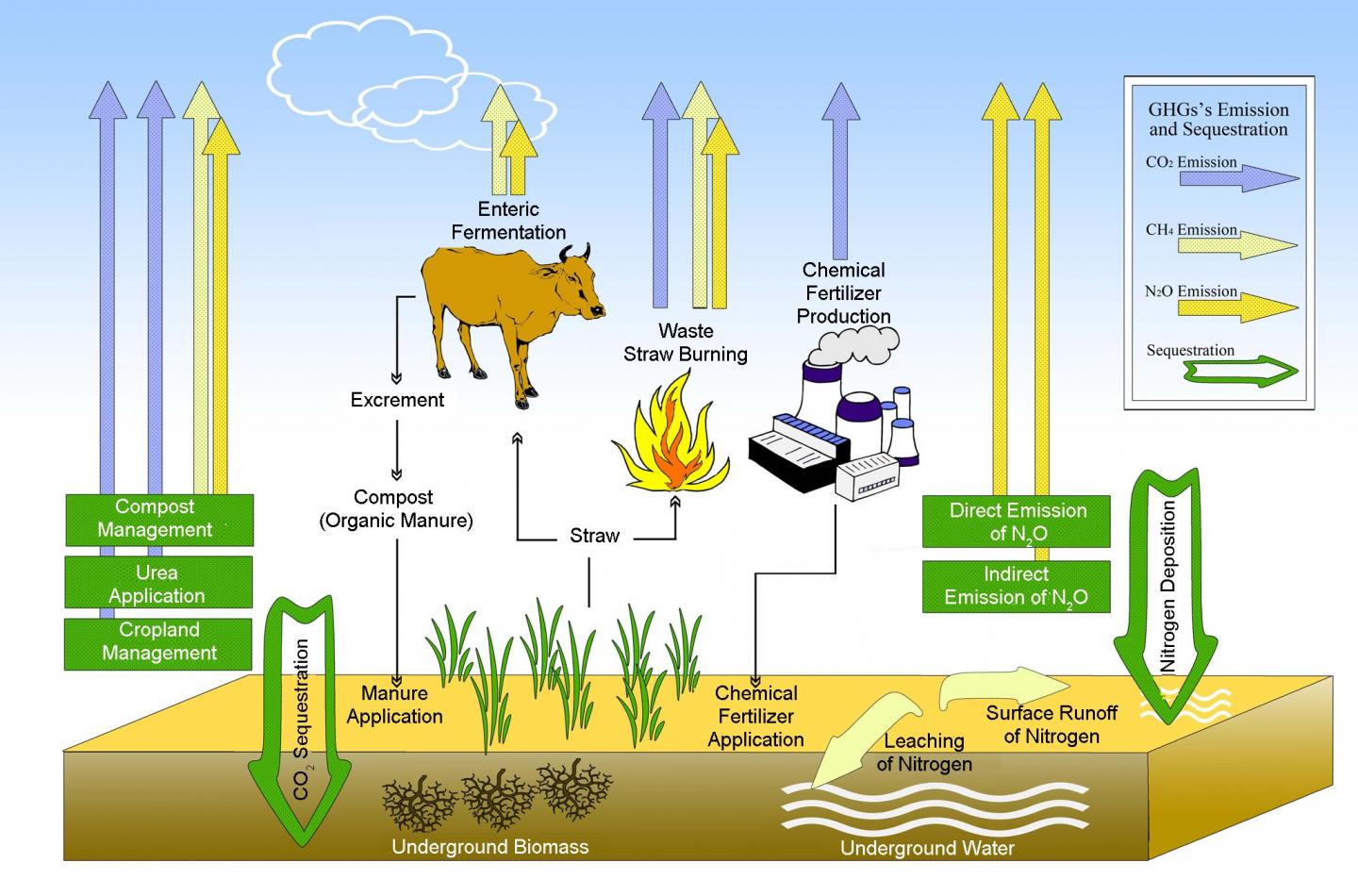Agriculture is a breathtaking achievement of modern science. We are on the path to being able to feed the world for the first time in history and the upward trend in obesity is due to the fact that more food has been produced at lower cost with less environmental strain than ever believed realistic.
But it still has a price. There are claims that approximately 35% of global greenhouse gases come from agriculture.
A new paper argues that regenerative, organic farming, ranching and land use could lead to sequestering several hundred billion tons of excess CO2. Increasing the soil's organic content will not only fix carbon and reduce emissions, it will also improve the soil's ability to retain water and nutrients and resist pests and droughts.
Pesticides are essential though everyone agrees that less is welcome. Breakthroughs like GMOs have resulted in flat pesticide usage in countries that have adopted them, even as production rises. Yet the paper argues that organic pesticides and using manure decrease greenhouse gases to where agriculture becomes a net gain for carbon. That hasn't been shown to be true outside the temperate eco-farm in eastern rural China where they conducted the study , though it is a laudable goal. If some areas were not better for farming than others, fertilizers and pesticides would never have been invented.

processes of greenhouse gases emission and sequestration in the studied agro-ecosystem. Credit: ©Science China Press
Jiang Gaoming, a professor at the Chinese Academy of Sciences' Institute of Botany, says for their experiment crop residues were applied to cattle feed and the composted cattle manure was returned to cropland with a winter wheat and maize rotation. Crop yield and greenhouse gas emissions were carefully calculated according to the Intergovernmental Panel on Climate Change (IPCC) Guidelines for National Greenhouse Gas Inventories 2006.
This study showed that replacing chemical fertilizer with organic manure significantly decreased the emission of greenhouse gases. Yields of wheat and corn also increased as the soil fertility was improved by the application of cattle manure. Totally replacing chemical fertilizer with organic manure decreased GHG emissions, which reversed the agriculture ecosystem from a carbon source (+ 2.7 t CO2-eq. hm-2 yr-1) to a carbon sink (- 8.8 t CO2-eq. hm-2 yr-1).
The farmlands were acting as a carbon sink without yield losses.
So if you have the means to buy up prime farmland where you can get high yields using manure, this can work, at least for personal consumption.
Citation: Haitao Liu, J.L., Xiao Li, Yanhai Zheng, Sufei Feng, Gaoming Jiang. 2015. Mitigating greenhouse gas emissions through replacement of chemical fertilizer with organic manure in a temperate farmland. Science Bulletin, 60(6), 598-606. This research was jointly funded by the Key Strategic Project of the Chinese Academy of Sciences (KSZD-EW-Z-012-2) and the National Science and Technology Support Program, China (No.2012BAD14B00).





Comments